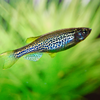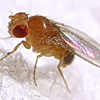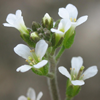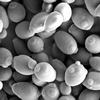PSMD: Pan-Species Microsatellite Database
Microsatellites (simple repeat sequences, SSRs or short tandem repeats, STRs), are tandem repeats of short DNA motifs with length of 1-6 bp which have extensively been exploited as powerful genetic markers for diversity applications, and are involved in gene regulation as well as implicated in numerous genetic diseases even in cancers. PSMD was developed as a web-based comprehensive database comprising 678,106,741 perfect microsatellites and 43,848,943 compound microsatellites from 18,408 organisms covered almost all species with available genomic data. PSMD enables scientists to easily browse, filter, compare, download SSRs with relevant information.
Quickly jump to human and model organisms
Statistics
| Perfect Microsatellites (SSRs) | Compound Microsatellites (CMs) | Genic SSRs | Genic CMs | Coding SSRs | Coding CMs |
|---|---|---|---|---|---|
| 678,106,681 | 43,848,941 | 175,311,695 | 9,765,018 | 87,329,511 | 4,210,890 |
| Eukaryota | Archaea | Bacteria | Viruses | Total | ||||
|---|---|---|---|---|---|---|---|---|
| Animals | Plants | Fungi | Protists | Other | ||||
| 1,074 | 371 | 1,513 | 293 | 21 | 632 | 12,044 | 2,460 | 18,408 |
Release
- Current Version 1.4
- Last Updated 七月 16, 2020
News
Version 1.4
七月 16, 2020Fixed overview statistical report exporting error. Fixed krait online tool with no results for selected genomes.
Version 1.3
九月 17, 2019Added a search function for users to search a species by name, accession and taxonomy. Added support for checking primer location. Fixed some bugs.
Version 1.2
五月 16, 2019We have added documentation, added support for exporting plot data and improved download speed.
Version 1.1
五月 10, 2019Download function was added to overview page for exporting statistics; plot display error when no compound microsatellite found was fixed.
Version 1.0
四月 12, 2019The first version of PSMD was released and is online now
Contact
- Lianming Du Chengdu University dulianming@cdu.edu.cn
- Zhenxin Fan Sichuan University zxfan@scu.edu.cn
- Bisong Yue Sichuan University bsyue@scu.edu.cn

















